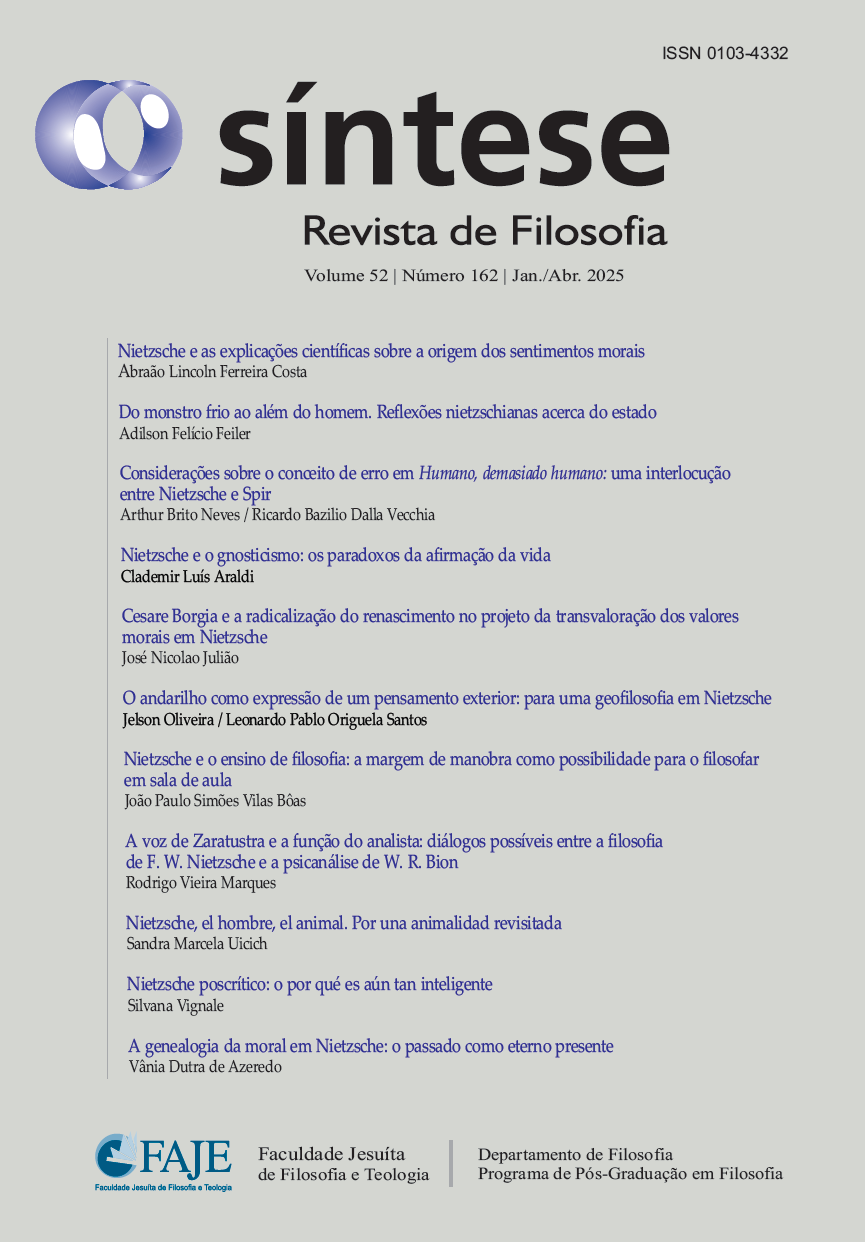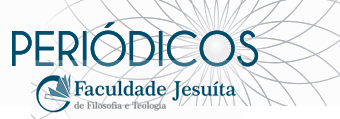CONSIDERATIONS ON THE CONCEPT OF ERROR IN HUMAN, ALL TOO HUMAN: A DIALOGUE BETWEEN NIETZSCHE AND SPIR
DOI:
https://doi.org/10.20911/21769389v52n162p49/2025Abstract
The present article explores the theory of error in Human, All Too Human, seeking to determine the criterion Nietzsche employs to assert that a given representation of morality, religion, or aesthetics is deceptive. The criterion provided by Nietzsche inevitably involves a correspondence conception of truth. In the case of Human, All Too Human, error is rooted in the lack of alignment between our representations and “nature” or the “real world” (HA/MA 11). Nietzsche’s primary interlocutor on this matter is Spir, a philosopher who will be considered here as a source. We will examine the dialogue with Spir through the lens of the concept of representation (conditioned), the concept of error, and the role of the unconditioned principle of identity as articulated in Thought and Reality (1877). The article identifies Nietzsche’s parasitic position in relation to Spir’s theses — on the one hand, taking advantage of Spir’s logical-argumentative power regarding metaphysical claims, while on the other, rejecting the status of the unconditioned concept. From Spir, Nietzsche derives the thesis of the incompatibility between the logical-representational structure and nature, understood as Heraclitean truth.
Keywords: Nietzsche. Spir. Theory of error.






























